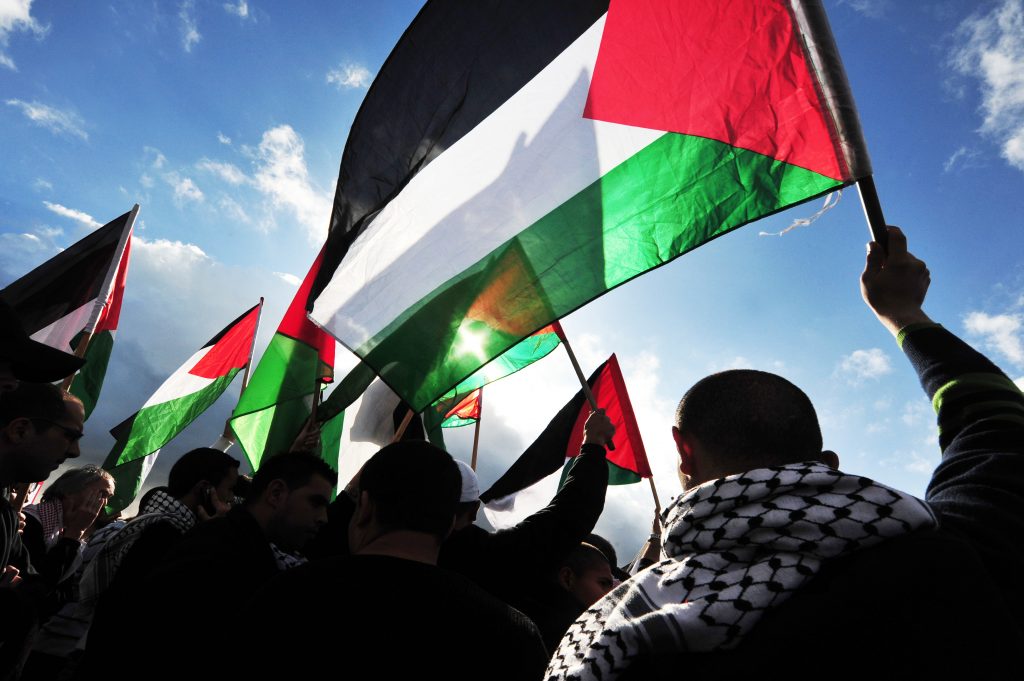IN THE MEDIA
Amnesty’s Israel ‘apartheid’ report sets back Palestinians’ struggle
February 9, 2022 | Colin Rubenstein

Palestinian activists are determined to take advantage of a new Amnesty International report which parrots many of the Palestinian national movement’s most extreme talking points against Israel.
The report not only ridiculously proclaims Israel guilty of the crime of “apartheid”, but says this began with Israel’s founding in 1948.
Unfortunately, this Palestinian “success” with Amnesty will not only likely damage the standing of a once widely respected human rights NGO, but set back, rather than advance, hopes for Palestinians to achieve their legitimate aspirations.
The success of the Palestinian movement in having Amnesty condemn Israel as apartheid can be traced to a decision taken by the NGO forum at the UN’s farcical 2001 Durban anti-Racism conference to promote an Action Plan for the “complete isolation of Israel as an Apartheid state.” This plan was jointly developed by NGOs, including Amnesty, with Palestinian groups and the Organisation of the Islamic Conference. The NGO conference at Durban was marred by extreme antisemitism, including Jewish speakers being threatened and shouted down, and flyers lauding Hitler.
Since then, participating NGOs like Amnesty have gradually implemented that Action Plan by accusing Israel of apartheid in various ways and urging boycotts. This is done using “research” conducted by Palestinian NGOs – most actually affiliated with official Palestinian bodies making up the Palestine Liberation Organisation – which participated in formulating that Durban Action Plan.
That “research” – and this report – not only ignores many facts and realities, distorts and misrepresents others, and twists international law, it also perpetuates the rejectionist extremism that is the main reason the Palestinians do not yet have their own state.
It ignores that Israel’s Arab minority has more political rights and civic freedoms than Arab populations in every other regional country. Arab Israelis are not only fully equal under law, but also have leading roles in all sectors of Israeli society – politics, the economy, medicine, the judiciary, the media, art and culture, and every other sphere. Moreover, polls of Israeli Arabs find a large majority would rather live in Israel than any other country. Would they say that about an “apartheid state”?
The report makes much of Israel’s Law of Return that allows Jews a privileged right to immigrate to Israel and obtain citizenship – treating this as key evidence that Israel has always been a supposed “apartheid state”. But international anti-racism treaties explicitly allow such laws, and many democratic countries have similar laws privileging immigration for their national diasporas – including Mexico, Ireland, Finland, Greece, Poland, Germany, Italy, Denmark and Japan. No one accuses them of “apartheid” as a result.
Meanwhile, Palestinian violence and terrorism simply don’t exist in the Amnesty report, except for a brief, dismissive reference to Hamas rockets during last year’s Gaza conflict. Thus, Israeli security measures responding to such terrorism – such as the West Bank security barrier built in response to suicide bombings which killed hundreds during the second intifada – are treated as completely arbitrary examples of racist apartheid.
Similarly, Amnesty insists a key part of Israel’s “apartheid” is a temporary law Israel put in place during the second intifada – lapsing last year – which limited Palestinians from the West Bank and Gaza from automatically gaining Israeli residency by marrying an Israeli citizen. The context Amnesty ignores is that numerous West Bank Palestinians married Israeli citizens and then entered Israel to engage in terrorism before the law was passed.
Amnesty actually admits Israel has no resemblance to apartheid-era South Africa, where blacks were legally unequal and under enforced segregation from whites across all aspects of society. But determined to find Israel guilty of apartheid nonetheless, it invents a definition of “Apartheid” largely derived from an almost forgotten 1973 Soviet-sponsored “anti-Apartheid Treaty” which no Western democracy ever signed.
Amnesty’s legally absurd definition of ‘apartheid’ basically makes any state with a national ethnic identity or lingering problems with discrimination against minorities guilty of “Apartheid” – in other words, most countries.
Most importantly, Amnesty fails to acknowledge that while Israel is indeed supposed to be a homeland for the Jewish people, the international expectation has long been for a two-state resolution to also provide a homeland for the Palestinian people. This could have happened as the UN intended in 1948 – but the Palestinians and the Arab states rejected partition, and after Israeli was established, made no effort to create a Palestinian state on lands Israel did not control from 1948 to 1967.
Moreover, Israel has offered the Palestinians full statehood incorporating Gaza, the vast majority of the West Bank and a capital in east Jerusalem in exchange for peace at least three times – in 2000, 2001, 2008 – and received only rejection from the Palestinian leadership in response.
There would likely be a Palestinian state today but for the sort of blanket rejectionism of Jewish self-determination anywhere in their homeland represented by Amnesty’s report and its cheerleaders.
Thus the report’s net effect will be both to damage and discredit the global fight for universal human rights Amnesty once stood for, and to hinder any realistic hopes for a genuine two-state resolution to the Israeli-Palestinian conflict.
Dr Colin Rubenstein is executive director of the Australia/Israel & Jewish Affairs Council (AIJAC).
Tags: Amnesty International, Israel, NGOs, Palestinians





